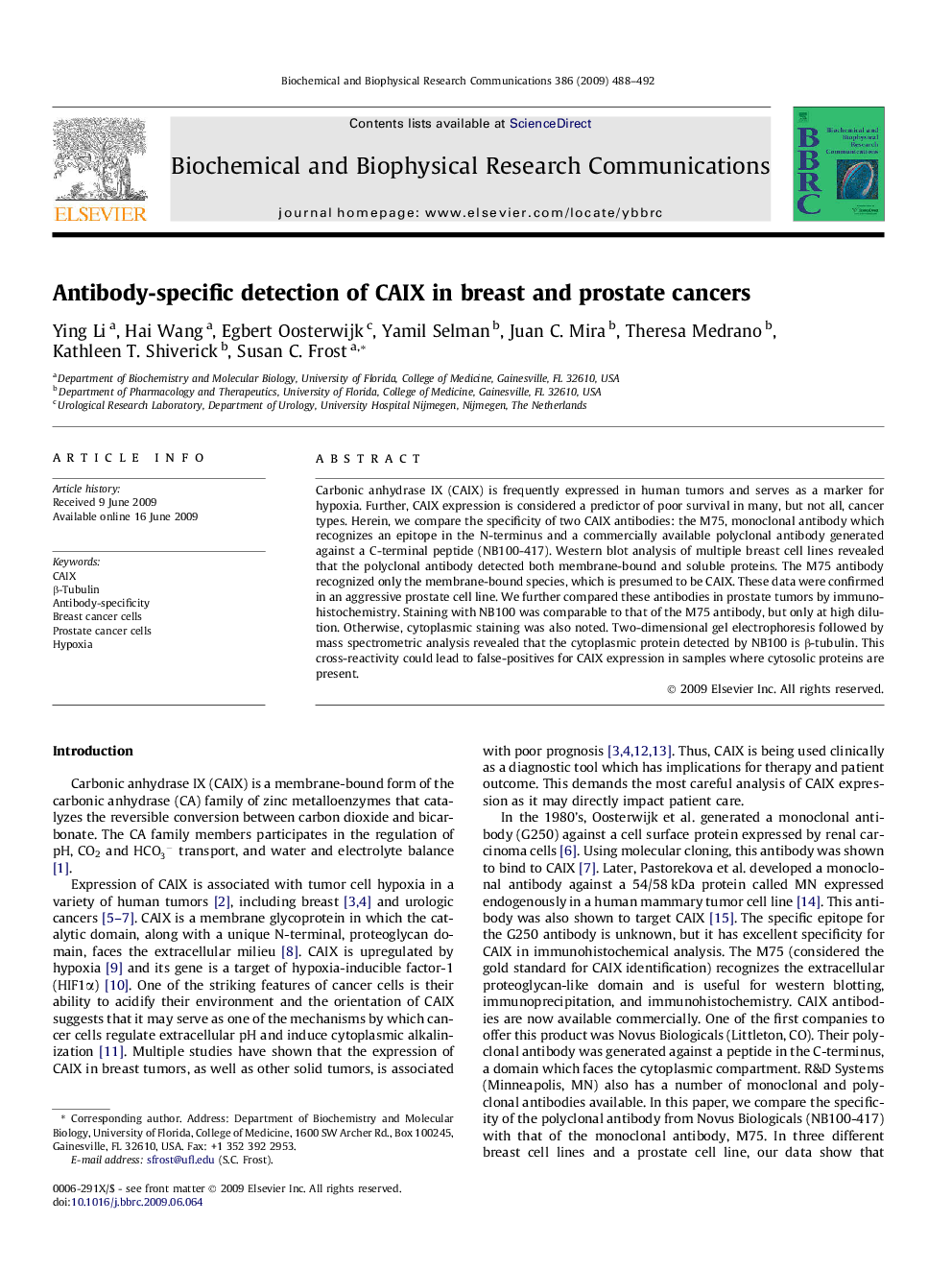| Article ID | Journal | Published Year | Pages | File Type |
|---|---|---|---|---|
| 1933373 | Biochemical and Biophysical Research Communications | 2009 | 5 Pages |
Carbonic anhydrase IX (CAIX) is frequently expressed in human tumors and serves as a marker for hypoxia. Further, CAIX expression is considered a predictor of poor survival in many, but not all, cancer types. Herein, we compare the specificity of two CAIX antibodies: the M75, monoclonal antibody which recognizes an epitope in the N-terminus and a commercially available polyclonal antibody generated against a C-terminal peptide (NB100-417). Western blot analysis of multiple breast cell lines revealed that the polyclonal antibody detected both membrane-bound and soluble proteins. The M75 antibody recognized only the membrane-bound species, which is presumed to be CAIX. These data were confirmed in an aggressive prostate cell line. We further compared these antibodies in prostate tumors by immunohistochemistry. Staining with NB100 was comparable to that of the M75 antibody, but only at high dilution. Otherwise, cytoplasmic staining was also noted. Two-dimensional gel electrophoresis followed by mass spectrometric analysis revealed that the cytoplasmic protein detected by NB100 is β-tubulin. This cross-reactivity could lead to false-positives for CAIX expression in samples where cytosolic proteins are present.
